Filter by
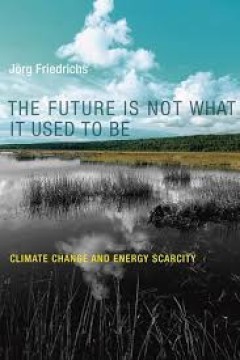
The future is not what it used to be : climate change and energy scarcity
"The future is not what it used to be because we can no longer rely on the comforting assumption that it will resemble the past. Past abundance of fuel, for example, does not imply unending abundance. Infinite growth on a finite planet is not possible. In this book, J?org Friedrichs argues that industrial society itself is transitory, and he examines the prospects for our civilization's coming …
- Edition
- -
- ISBN/ISSN
- 9780262316620
- Collation
- 1 online resource
- Series Title
- -
- Call Number
- -
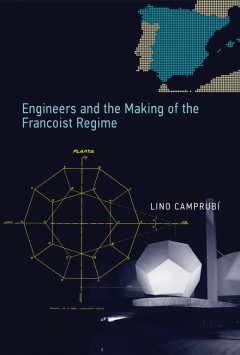
Engineers and the making of the Francoist regime
In the 20th century, science and technology became central to territorial transformation and in turn to state building. This was no less true for the Francoist regime. Engineers were not just working 'under' the dictatorship, but became active participants within it. This book traces concrete material objects in their way from laboratories onto the Spanish landscape. The material history of the…
- Edition
- -
- ISBN/ISSN
- 9780262323222
- Collation
- 1 online resource (xiii, 298 pages) :illustrations, maps.
- Series Title
- -
- Call Number
- -
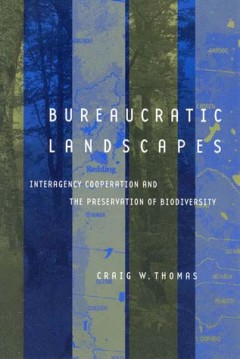
Bureaucratic landscapes :interagency cooperation and the preservation of biod…
Political scientists have long been concerned about the tension between institutional fragmentation and policy coordination in the U.S. bureaucracy. The literature is rife with examples of agencies competing with each other or asserting their independence, while cooperation is relatively rare. This is of particular importance in policy areas such as biodiversity, where species, habitats, and ec…
- Edition
- -
- ISBN/ISSN
- 9780262284882
- Collation
- 1 online resource (xxii, 353 pages).
- Series Title
- -
- Call Number
- -
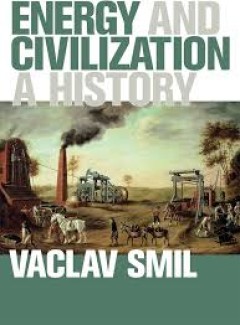
Energy and civilization a history
Extensively updated and expanded edition of the author's Energy in world history (Boulder : Westview Press, 1994).Energy is the only universal currency; it is necessary for getting anything done. The conversion of energy on Earth ranges from terra-forming forces of plate tectonics to cumulative erosive effects of raindrops. Life on Earth depends on the photosynthetic conversion of solar energy …
- Edition
- -
- ISBN/ISSN
- 9780262338301
- Collation
- 1 online resource (vii, 552 pages) :illustrations
- Series Title
- -
- Call Number
- -
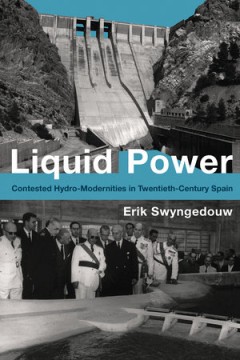
Liquid power :water and contested modernities in Spain, 1898-2010
Erik Swyngedouw explores how water becomes part of the tumultuous processes of modernisation and development. Using the experience of Spain as a lens to view the interplay of modernity and environmental transformation, he shows that every political project is also an environmental project. Offering an innovative perspective on the relationship of nature and society, 'Liquid Power' illuminates t…
- Edition
- -
- ISBN/ISSN
- 9780262326957
- Collation
- 1 online resource (xiv, 301 pages) :illustrations.
- Series Title
- -
- Call Number
- -
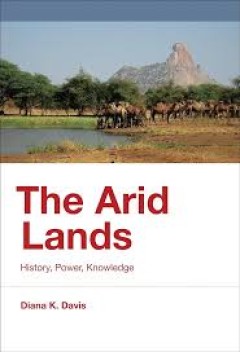
The arid lands history power knowledge
An argument that the perception of arid lands as wastelands is politically motivated and that these landscapes are variable, biodiverse ecosystems, whose inhabitants must be empowered.OCLC-licensed vendor bibliographic record.
- Edition
- -
- ISBN/ISSN
- 9780262333535
- Collation
- 1 online resource (xx, 271 pages, 8 unnumbered pages of plates) :illustrations (some color), maps.
- Series Title
- -
- Call Number
- -
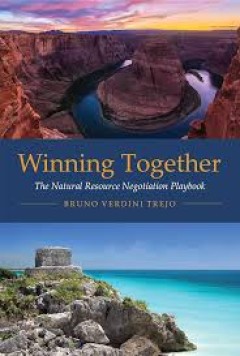
Winning together :the natural resource negotiation playbook
Strategies for transboundary natural resource management; winner of Harvard Law School's Raiffa Award for best research of the year in negotiation and conflict resolution.OCLC-licensed vendor bibliographic record.
- Edition
- -
- ISBN/ISSN
- 9780262343633
- Collation
- 1 online resource (viii, 322 pages) :illustrations, maps.
- Series Title
- -
- Call Number
- -
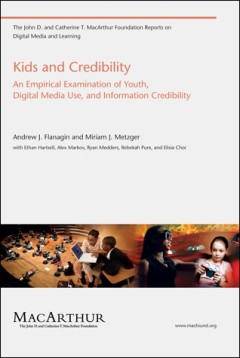
Kids and Credibility: An Empirical Examination of Youth, Digital Media Use, a…
Overview: How well do children navigate the ocean of information that is available online? The enormous variety of Web-based resources represents both opportunities and challenges for Internet-savvy kids, offering extraordinary potential for learning and social connection but little guidance on assessing the reliability of online information. This book reports on the first large-scale survey to…
- Edition
- -
- ISBN/ISSN
- 9780262266581
- Collation
- -
- Series Title
- -
- Call Number
- -

The Political Lives of Information: Information and the Production of Develop…
"This book critiques what the author sees as a growing global cult of information through three case studies examining Indian anti-poverty initiatives"--OCLC-licensed vendor bibliographic record.
- Edition
- -
- ISBN/ISSN
- 9780262370370
- Collation
- 1 online resource.
- Series Title
- -
- Call Number
- -
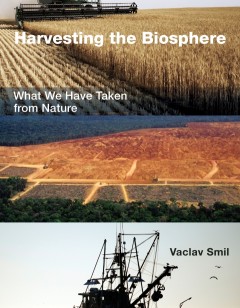
Harvesting the biosphere :what we have taken from nature
An interdisciplinary and quantitative account of human claims on the biosphere's stores of living matter, from prehistoric hunting to modern energy production. The biosphere—the Earth's thin layer of life—dates from nearly four billion years ago, when the first simple organisms appeared. Many species have exerted enormous influence on the biosphere's character and productivity, but none …
- Edition
- -
- ISBN/ISSN
- 9780262312264
- Collation
- 1 online resource
- Series Title
- -
- Call Number
- -
 Computer Science, Information & General Works
Computer Science, Information & General Works  Philosophy & Psychology
Philosophy & Psychology  Religion
Religion  Social Sciences
Social Sciences  Language
Language  Pure Science
Pure Science  Applied Sciences
Applied Sciences  Art & Recreation
Art & Recreation  Literature
Literature  History & Geography
History & Geography